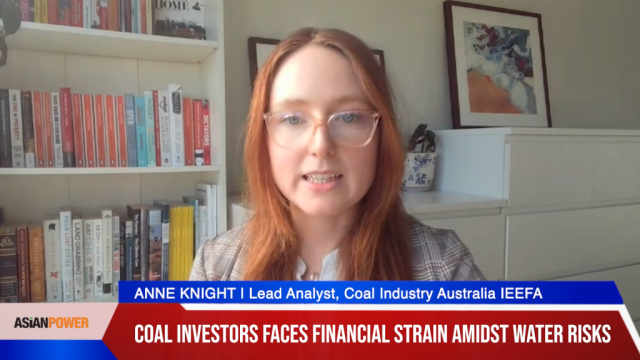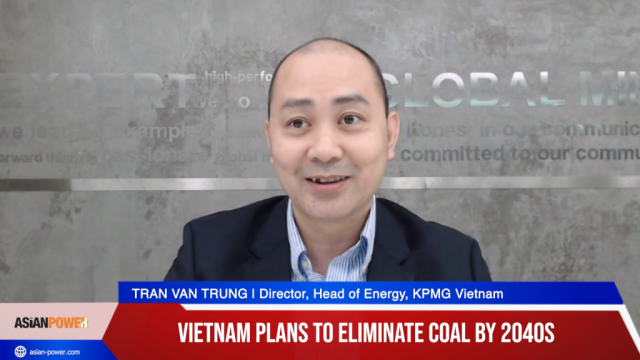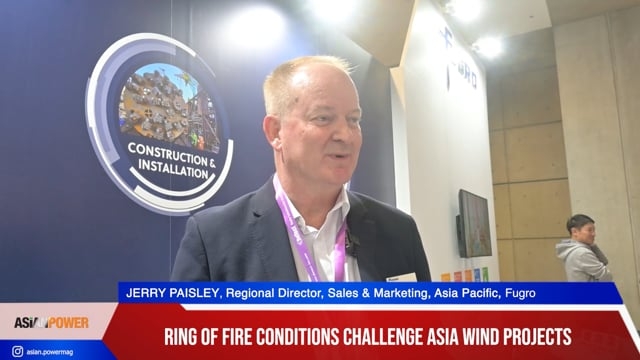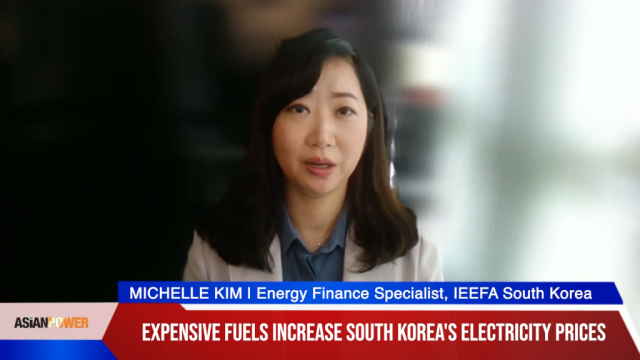People
Suntech's Dr. Shi appointed Chief Chairman of APVIA
Dr. Zhengrong Shi, CEO and founder of Suntech Power Holdings, has been appointed the first Chief Chairman of the Asian Photovoltaic Industry Association. He will hold the post for two years. Since the inception of APIVA on January 16, 2009, it now consists of 670 PV enterprises, 23 industry associations and 15 research institutions. The aim of the association is to encourage technological and economic information exchange, strengthen its members' connection with governments and societies in Asia, accelerate the progress in upgrading and popularization of technology, promote industry economy, while providing services to members and protect their legal rights and interests. Tom Wu, Secretary General of the Taiwan Photovoltaic Industry Association, said, “APVIA has a strong leader in Dr. Shi who can lead the Asian photovoltaic industry to achieve grid parity. We are excited to work together to help drive job growth and solar installations anywhere the sun shines." Dr. Shi founded Suntech in 2001 and inventor of 15 patents in PV technologies and has published or presented a number of articles and papers in PV-related scientific magazines and at conferences.
Suntech's Dr. Shi appointed Chief Chairman of APVIA
Dr. Zhengrong Shi, CEO and founder of Suntech Power Holdings, has been appointed the first Chief Chairman of the Asian Photovoltaic Industry Association. He will hold the post for two years. Since the inception of APIVA on January 16, 2009, it now consists of 670 PV enterprises, 23 industry associations and 15 research institutions. The aim of the association is to encourage technological and economic information exchange, strengthen its members' connection with governments and societies in Asia, accelerate the progress in upgrading and popularization of technology, promote industry economy, while providing services to members and protect their legal rights and interests. Tom Wu, Secretary General of the Taiwan Photovoltaic Industry Association, said, “APVIA has a strong leader in Dr. Shi who can lead the Asian photovoltaic industry to achieve grid parity. We are excited to work together to help drive job growth and solar installations anywhere the sun shines." Dr. Shi founded Suntech in 2001 and inventor of 15 patents in PV technologies and has published or presented a number of articles and papers in PV-related scientific magazines and at conferences.
CPI President Lu astonished to learn about Myitsone suspension
Mr. LU Qizhou, President of China Power Investment Corporation, admitted he was totally astonished to learn that the Myanmar government will suspend the on-going Myitsone Hydropower Project.
Kim elected by KEPCO shareholders as new chief
Shareholders of KEPCO named Kim Joong-kyum as its new chief.
Kakodkar to lead all Indian solar projects
Dr. Anil Kakodkar, former chairman of the Atomic Energy Commission, will be the chairman India’s National Solar Energy Company.
Black & Veatch makes appointments to global infrastructure business
Two senior management appointments had been made as it addresses infrastructure needs for global regions.
Sayed named president of Peabody Mongolia and India
Arshad Sayed has been named President – Peabody Mongolia and India, and will manage all of its business development initiatives.
Suzlon China appoints new CEO
Suzlon Energy appointed He Yaozu as CEO and Country Manager of its China operations, Suzlon Energy Tianjin Limited. He Yaozu assumes his new role from 1st December 2010 and will report directly to Group Chairman Tulsi Tanti.
Combet appointed Australia’s energy efficiency minister
Greg Combet is Australia's new minister for Climate Change and Energy Efficiency, replacing Senator Penny Wong.
CLP appoints Lancaster as Managing Director
Richard Lancaster has been appointed Managing Director of CLP Power Hong Kong Limited, succeeding Mrs. Betty Yuen.
Meiya Power names Perez CEO, promotes Chea as Pres.
Mr. Manuel Perez Dubuc has been appointed as Meiya Power Company’s new Chief Executive Officer effective 15 June 2009.
Emerson appoints Campbell energy VP in Asia Pacific
Emerson Network Power has promoted Ross Campbell as vice president for its Energy Systems business in Asia Pacific.
Meralco COO is retiring
Jesus P. Francisco, president and chief operating officer of Manila Electric Company (Meralco), is retiring after 37 years with the power distributor. Francisco, who turned 65 years old last year, intended to retire in June 2008 to cap his seven-year presidency in Meralco. “But it was not meant to be,” he said. Meralco spokesman Elpi O. Cuna said Francisco’s replacement will be elected by the management during a board meeting that is scheduled before the close of January 2009. However, the retiring official remains part of the company board until May, which is when the next stockholders’ meeting is slated. Meralco is also retaining Francisco’s services as a consultant of the company, according to Chairman and Chief Executive Officer Manuel M. Lopez. Francisco started his 37-year stay with Meralco back in 1971 as a management trainee, and he performed various roles under four leaderships. In 1998 he became executive vice-president and chief operating officer. 2001 was Francisco’s first year as president, and he had since led Meralco amidst regulatory and technical issues.
John Zhu appointed President of Wärtsilä in China
Wärtsilä has appointed Mr John Zhu as President of Wärtsilä China from January 1st, 2009. John Zhu has significant experience in leading and developing industrial business operations, his most recent appointment having been as Country Manager for Eaton Truck & Bus Components in Shanghai, China, a position he has held since 2005. Eaton Corporation is a diversified industrial manufacturer headquartered in the USA. He has also held other managerial positions in the automotive industry and in the consultancy business, both in China and in the USA. Mr Clas-Eirik Strand, the current President of the company, will retire on February 28th, 2009, when he reaches his retirement age. Wärtsilä has been present in China since 1986 through its fully owned subsidiary, Wartsila China Ltd, and through long-term license agreements. During recent years, Wärtsilä has begun the production of propulsion and engines at its subsidiary and joint venture companies' plants. In 2007, Wärtsilä opened a large new reconditioning workshop in Shanghai. Altogether, the company currently has approximately 1600 employees in its subsidiary and joint venture companies, located in Shanghai, Dalian, Guangzhou, Beijing, Hong Kong, Panyu, Wuxi, Zhenjiang and Qingdao.
Kepco tells it like it is
Q1. Could you please explain in further detail what KEPCO 2015 is about?
Lakshmi Mittal and Farallon Capital join forces
Billionaire Lakshmi Mittal and Farallon Capital Management LLC invested a combined $399 million in a power unit of Indiabulls Real Estate Ltd., India's fourth- biggest developer by market value, seeking a share of an industry poised to accelerate in Asia's third-biggest economy.
Lighting up Macau in more ways than one
Companhia de Electricidade de Macau (CEM), which has lit up the lightbulbs in Territory of Macau for more than a century, and its CEO Franklin Willemyns speaks to Asian Power about CEM's strategies in battling rising fuel costs and increasing tariffs. Willemyns, is also the Chairman of 17th Conference of the Electric Power Supply Industry (CEPSI), which Macau hosts this year.
IPPS the silver bullet in India's power debacle?
India is thirsty, and its not for a cold glass of water, which is a necessary companion for a serving of rogan josh. If India is to quench its insatiable thirst for power, India's Independent Power Producers (IPPs) must come to the fore and take some responsibility from the government. But, who can do the impossible and satisfy India's escalating power demands? Most Indian's believe that solving the country's power debacle is the government's responsibility. A deeper look into the issue, we can see that it is the IPPs that should be doing more, such as Reliance Energy which just happens to be owned by India's richest man, Anil Ambani. "Private players need to come forward, including companies such as Reliance. There is a consortium of all these private players in the market who can contribute, identify and meet these power challenges," said Vishwas Sachedra, Deputy COO of Hallex. Why are IPPs backing off? If India is serious about meeting the power needs of one sixth of the world's population, IPPs such as Reliance Energy need to start making their presence felt at key meets like this years Power-Gen India & Central Asia 2008. If Anil Ambani's spectacular no-show is anything to go by, the IPPs seem to be backing away from the kaleidoscope of challenges facing India's power sector. Ambani decided not to grace us with his presence at Power-Gen this year after he pulled out of his scheduled speech on the the morning of the inauguration ceremony. The Minister of Power, the CMD's of NTPC, NHPC and BHEL and industry delegates alike must have been asking each other where Ambani was. Well he was definately not at Power-Gen, which is considered by most to be the premier event in India's power sector. This begs the question, is Ambani serious about India's power sector or is he just content to sit back and relax in his plush high-rise while India goes it alone? But, the government should take some of the blame for IPPs backing away from meeting India's power challenge. IPPs are being restricted at every turn it seems, thanks to India's rampany bureaucracy and conservative reform policies. India has been on its path to power reform since 1991, when India's Ministry of Power published a series of notifications, promoting the inclusion of IPPs into India's electricity sector. The revolutionary policy gave IPPs the right to establish, operate and maintain power generation plants. Despite the government propaganda and much excitement, India's reform policy turned out to be a dud. Against its target of 40,000mw between 1992-1997, India fell short significantly by adding 17,000mw. India is starting to realise if it is a little to late, that the problem lies with the states. The problem is that without radical reform in the bureaucracy, the likelihood of IPPs coming to the rescue of India's power sector remains a distant dream. Hallex Deputy COO, Vishwas Sachedra was just one of many companies at Power-Gen that felt IPPs such as Reliance Energy needs to be contributing more to India's power sector. But, there are steps the government could take to help IPPs come forward and help India meet this demand. The government must promote the rationalisation of tariffs through independent regulatory commissions. It must adopt transparent policies and propose a country-wide agricultural tariff at the minimum of 50% of the cost of supply. India must introduce 100 % metering and energy audits, reduce T&D losses, strengthen both sub-transmission and distribution systems. Finally, the government must sponsor the privatisation of distribution in major medium sized urban areas and decentralise distribution management in India's rural areas. Despite the plethora of conferences such as Power-Gen which hosting a large contingent of big-wigs and bureaucrats, the resolutions passed at meetings such as these remain a low priority on India's list for power sector reform, thus significantly deterring the impact of IPPs. Meeting the demand So what kind of problems do IPPs face in help India's power sector? India has plans to install more than 78,000mw from 2008 to 2012 in order to meet the demand of its booming power sector, which is predicted to surge to 210,000mw in 2012. India has a blueprint for the installation of a 600,000mw base in 2025. "The government is very progressive, they are making a lot of positive steps forward, that's good for both the industry and the economy," said Pawan Mehndiratta, Sales Manager of GE. India's power sector is peaking due to swelling power demands and the depletion of India's electrical supply. The massive power expansion programme that India is undertaking at the the moment is a positive sign for the country, but it still needs to address its decline in resources for raw materials. It is high time for big players such as Anil Ambani and Ravi Kumar, CMD of India's state-owned utility BHEL to work together to solve India's power problems. BHEL is in a unique position as it supplies electricity to three out of four homes in India, thus meeting 80-90% of the country's power needs. BHEL it seems is doing its bit to satisfy India's power demand by developing a series of power plants, through key partnerships with Alstom for boilers, Siemens for turbines and generators and GE for gas turbines. Siemens, Cummins and Hallex are also leading by example. Siemens must think it is a good time to be in India with its steam turbine factories, gas turbines and automation systems popping up left, right and centre. Cummins says it too is playing a key role in meeting India's significant shortfall in both demand and capacity. "We play a very crucial role in terms of not only backup but distribution generator solutions to many parts of the country," said Cummins, CMD, Anant Talaulicar. Hallex, on the other hand has roughly 15% of the power sector's market share is planning to supply at least 13 to 15% of India's power supply. With India's power sector needing to grow by as much as 9-10% by 2012, the balance between supply and demand seems lopsided. But, not all hope is lost. India's power sector is finally catching up to the rest of the world thanks to the government's radical policy shift towards the acceptance of IPPs and its planned liberalisation of the power sector. "It is a sunrise sector in India, people have been talking about the power sector moving, but this is the time that maximum impetus has been given to the sector and there is a thrust from all corners, both the power sector and the government," said Ranjith Nair, Manager of Marketing and Sales at Siemens. "There was a time that there was a big gap between what is happening in the rest of the world and here, but now that is not the case, we are on par with the rest of the world," added Nair.
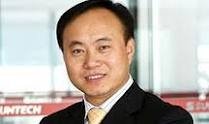
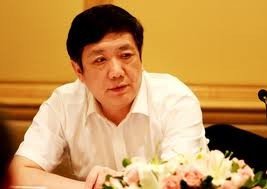
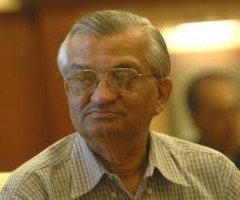
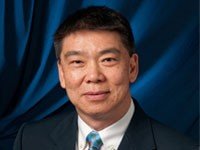



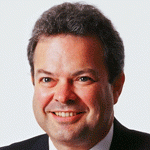


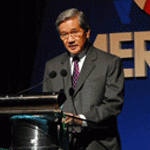
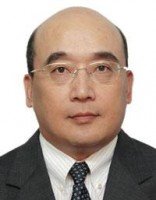


 Advertise
Advertise








